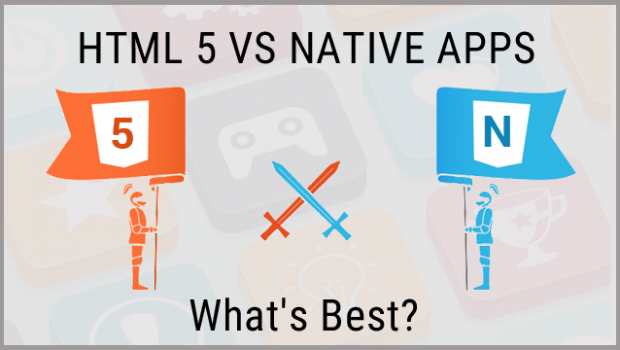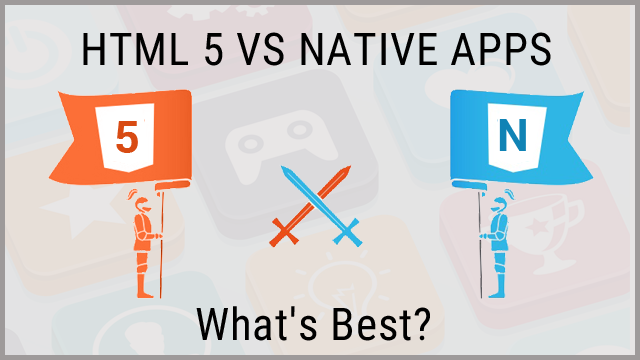HTML 5 Vs Native Apps – What’s Best
The debate of whether HTML 5 or native apps is better for web developers and users alike has been on-going since the advent of the former in 2014. While HTML 5 is significantly young, its development and increased preference over a short period of time is proof of just how good it is as a means for web development. Indeed, this seemingly endless discussion would have ended a long time ago if HTML 5 didn’t bring compelling features to the table. In order to find out which is best, an in-depth comparison between the two would have to be made.
HTML 5 Advantages
There are arguably more developers who know HTML. Anybody who undergoes formal schooling is bound to take up HTML. While there are stark differences between HTML 5 and HTML 4 (especially in its tags and structures), these are offset by the fact that both are still closely related to each other. Every aspect of HTML 4 can be found in HTML 5, making it easy for users to learn the latter. The same can’t be said for native apps as they are completely individual platforms that need focus and specialization.
HTML 5 also shares the same benefit of allowing developers to do rapid developments as its predecessors. Its codes can be written and modified in such a way that developers would be able to optimally make good use of their time HTML 5 also serves as that needed bridge between the older Web apps and mobile apps that are already rising in popularity.
Native Apps Advantages
What sets native apps apart are the undoubtable freedom in control of how you want users to experience them. This is especially important if you already have an inkling about what your clients expect from you Its interface is smoother and more engaging as well When it comes to security, native apps definitely outshine the competition as well.
Furthermore, what could be possibly trump the capability of these apps to increase loading times? Indeed, if there is one reason that should convince anyone to opt for native mobile applications rather than any other kind of web development app, it is that the latter are simply more efficient and offer stronger performances in both offline and online scenarios. It takes a longer time (and money) to develop compared to properties made via HTML 5, but many experts would agree that the end-result is simply better overall.
Conclusion
Both have its own stark downsides, that much is for certain. Native apps are too specialized and often require you to build separate versions for various platforms and operating systems, which of course takes time and effort. HTML 5, on the other hand, simply has none of the perks (like native performance, push messaging, address books, qr code access, to name a few) offered by native apps.
If we are to sum up the facts stated above, though, it becomes readily apparent that native apps are better than HTML 5, especially if one values quality over speed of development. Incidentally, experts are now even beginning to tout hybrid apps (apps that contain both HTML 5 and native app elements) as the legitimate and superior successor of both. Nonetheless, that topic most assuredly deserves a separate discussion.
Author Bio:
Martin Brown is a senior marketing executive at Top App Creators, a comprehensive listing service that acts as a platform for app development companies to showcase their services to prospective clients. You can also follow us on Facebook.
















